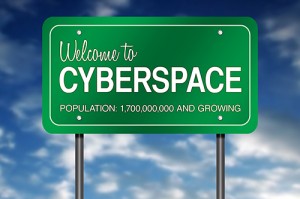 There has been a lot of noise lately about net neutrality in the United States, but I have been wondering: how about neutrality on the rest of our planet? We become focused on our problems, or potential problems, and often forget that we are not the only players in this game. The Internet is not used or owned exclusively by the US but also by the rest of the world, including China and Third World countries. How do they view net neutrality or are we making much ado about nothing?
There has been a lot of noise lately about net neutrality in the United States, but I have been wondering: how about neutrality on the rest of our planet? We become focused on our problems, or potential problems, and often forget that we are not the only players in this game. The Internet is not used or owned exclusively by the US but also by the rest of the world, including China and Third World countries. How do they view net neutrality or are we making much ado about nothing?
Definition
This is the best definition that I have found for net neutrality:
“Simply put, net neutrality is a network design paradigm that argues for broadband network providers to be completely detached from what information is sent over their networks. In essence, it argues that no bit of information should be prioritized over another. This principle implies that an information network such as the Internet is most efficient and useful to the public when it is less focused on a particular audience and instead attentive to multiple users.”
Just as the telegraph network of the 1800s and the telephone and electrical networks of the 1900s were and are neutral, the argument is raised that the Internet should follow suit.
What Is Different in 2014?
The term “net neutrality” was coined over ten years ago and is based on the early operating principle of the Internet that the network would be open equally to all. In December 2010, the Federal Communications Commission (FCC) tried to codify that accepted policy by creating the “Open Internet Order”. The flaw was that they were using the same playbook developed to regulate telephone companies. Internet providers, however, are classified as “information carriers,” not “communication carriers”. Verizon challenged this order in 2011 and the courts finally threw out the Open Internet Order this month, based on the fact that the FCC did not have jurisdiction to create that order. Suddenly, the term net neutrality is back in vogue and back in tweets.
Is The Rest of the World Open?
I was curious as to whether the rest of the world enjoys open Internet, regulated Internet, or tiered Internet. Tiered Internet is the doomsday scenario when Internet service providers charge customers and content providers a premium for higher bandwidth applications. This is the fear of the absence of regulated open Internet. In researching this question I came across a lot of theories and conjectures at both ends of the spectrum, but not a lot of straight answers. Just as the United States is trying to get a handle on how free the Internet should be, other countries are asking similar questions. The International Telecommunications Union (ITU), which is an arm of the United Nations, held a conference in December 2012 in Dubai, United Arab Emirates. At that conference, there was an attempt to float an international telecommunications treaty, but unlike many smaller countries, the US, Canada, and the UK refused to sign the treaty. This was a failed attempt to give more regulatory power over the Internet to the United Nations through the ITU. The next conference will take place in October this year in Busan, South Korea; it is assumed that a similar vote will come up again.
My Thoughts
It is not only the United States that is struggling with how or whether to regulate the Internet, the same scene is being played out on the international stage. The European Union is talking about it, China is talking about it, and South American countries are talking about it as well. They all are struggling to understand how to protect themselves from corporate interests or even from their neighbors, while ensuring that the citizens continue to enjoy unfettered access. My take is that Internet 3.0 will require a sizable investment in infrastructure, and if we want to continue to enjoy increasing access and options, we have to be talking about where those funds will be coming from.
Do you have an opinion on the current net neutrality debate? Let me know.
 About Kelly Brown
About Kelly Brown
Kelly Brown is an IT professional, adjunct faculty for the University of Oregon, and academic director of the UO Applied Information Management Master’s Degree Program. He writes about IT and business topics that keep him up at night.
